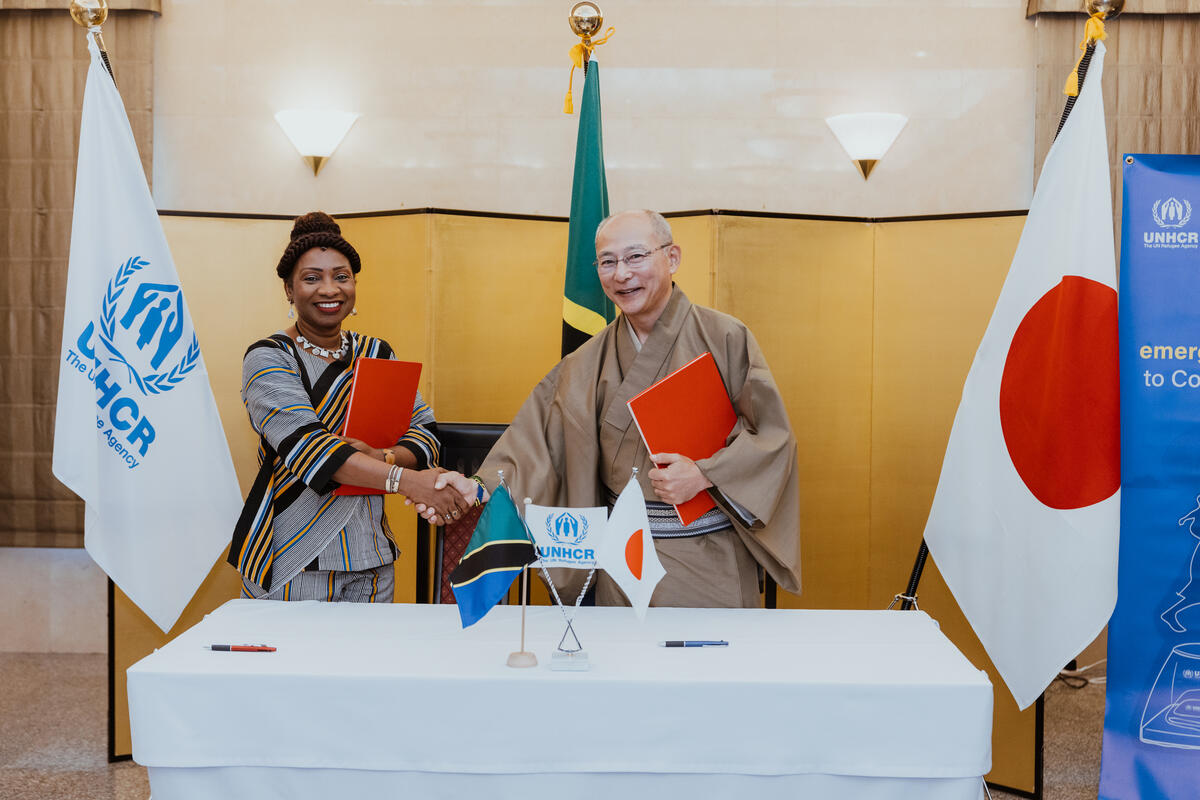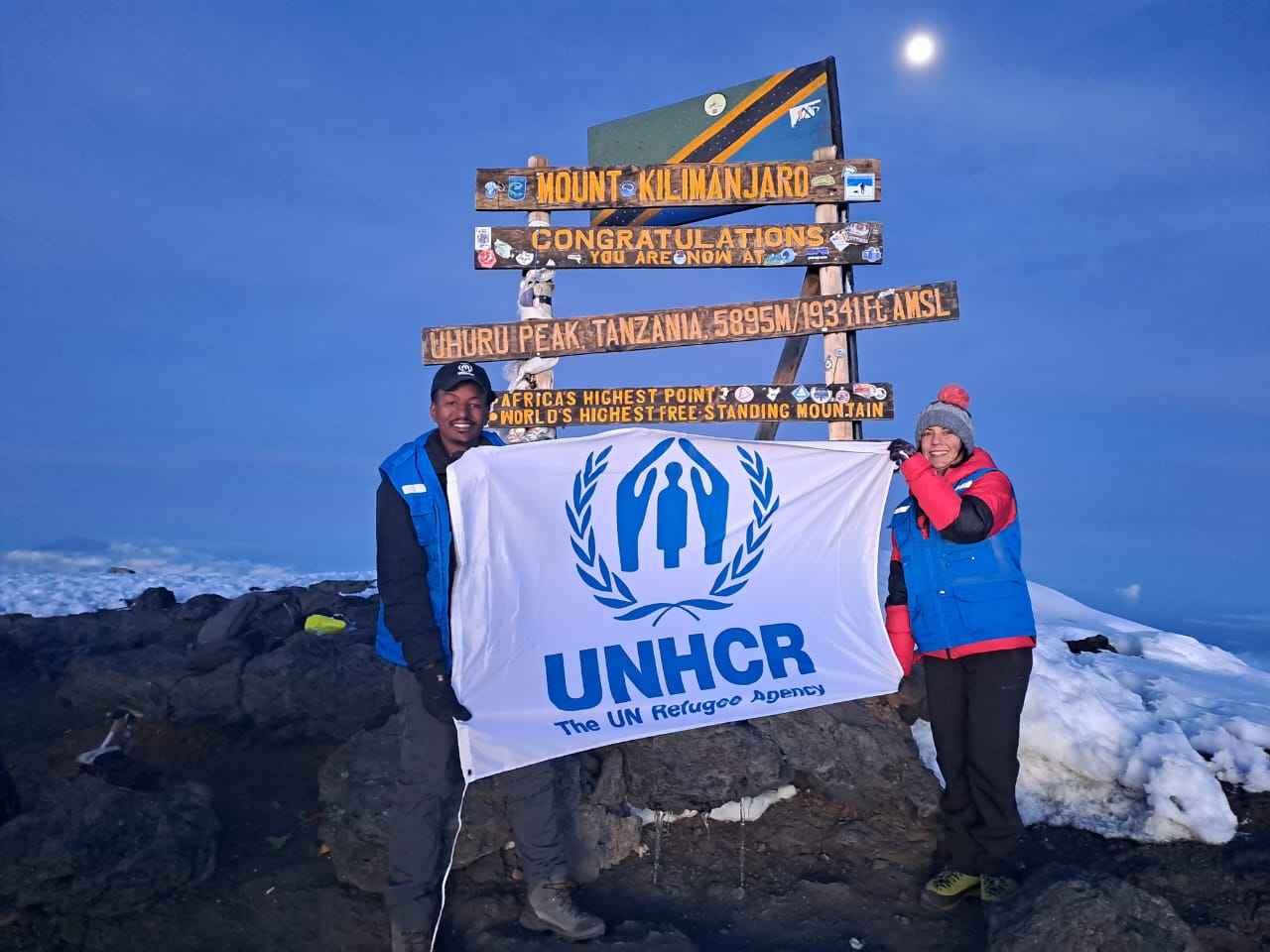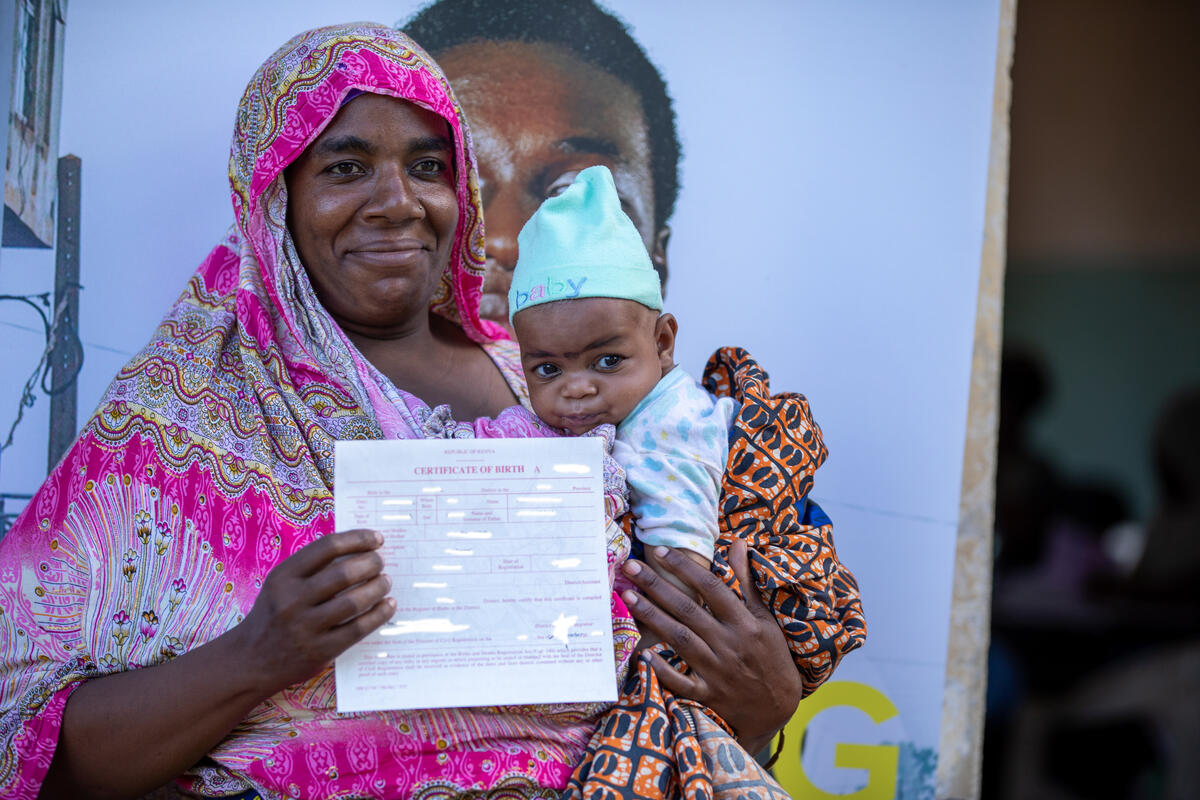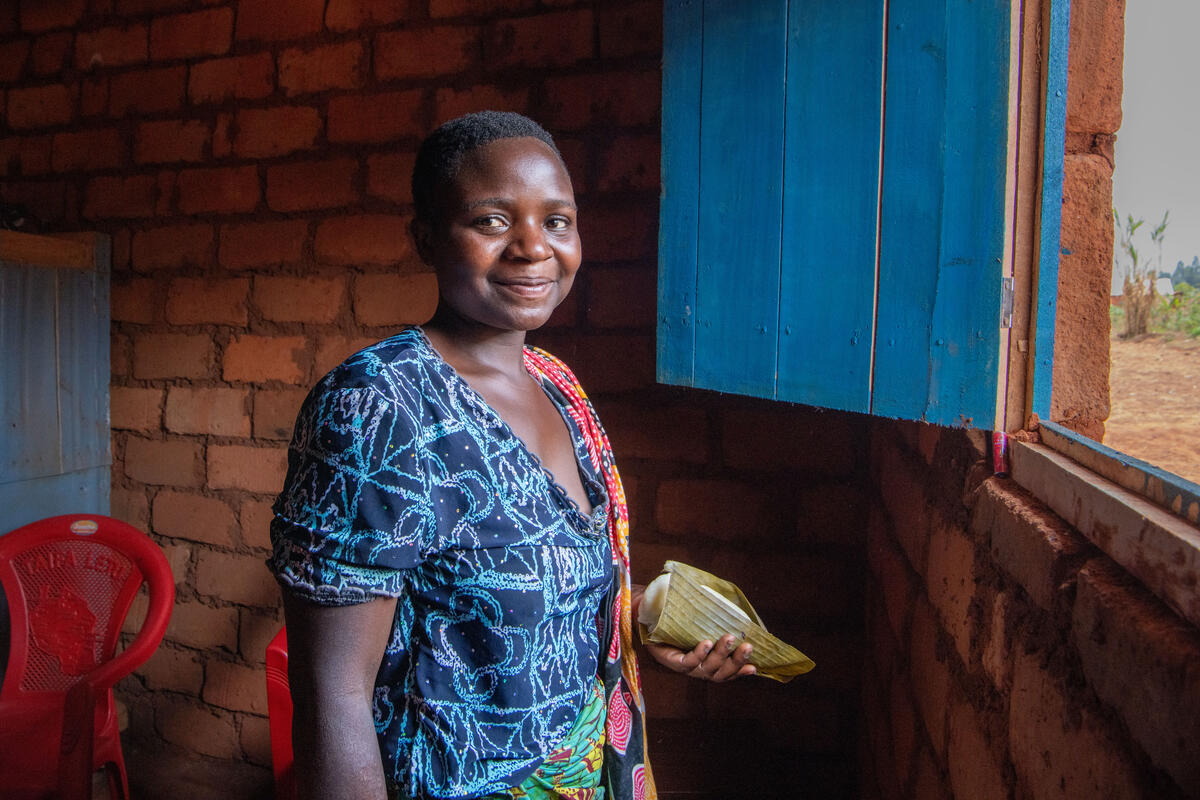"Reading makes me feel free"

"Reading makes me feel free"
Eyes glued to the screen of her phone, Bernice Uwimana smiles as she reads through a chapter of one of her favorite e-books. Her phone is her key to the outside world as she uses it to download thousands of free e-books from the internet.
These are her companions wherever she goes and she reads them voraciously whenever and wherever she can, sometimes late into the evening.
“Reading makes me feel free,” explains the twenty-one year old Burundian refugee living in Tanzania’s Nduta Refugee Camp. “I might not be free right now but I am able to travel to different places and meet different people by reading.”
The eldest of six children, Bernice has always been an avid reader. She chuckles as she recalls how as a child, she would read anything she could get her hands on, including instruction manuals.
“Reading makes me feel free.”
She counts African literary giants such as Chinua Achebe, Elechi Amadi and Okot p’Bitek as some of her favourite authors and is grateful to her parents, who were teachers in her native Burundi, for instilling a love of learning in her.
“I’ve been reading a lot of inspirational books lately because they give me hope,” she says, adding that she finds the bright glare of her screen comforting. When her battery dies, she goes to the charging stations dotted around the camp to charge her phone.
Brought up in Burundi and educated in Zambia, Bernice is multi-lingual, speaking six languages – English, Swahili, Nyanja, Bemba, Kirundi and Xhosa. This is a talent she’s been able to put to good use working as a translator in the camp.
“I’ve always been curious,” she says proudly. “I am someone who is always learning so it’s easy for me to pick things up just by listening.”
After completing secondary school in Zambia, Bernice went back to Burundi in December 2014. But when civil war erupted months later, she was forced to join over 100,000 Burundians who fled across the border into Tanzania.
“I am someone who is always learning so it’s easy for me to pick things up just by listening.”
Now living in Nduta camp, Bernice is among over 200,000 Burundian refugees living in Tanzania’s Nduta, Mtendeli and Nyarugusu camps. Serious funding shortfalls have seen Tanzania receive only 12 per cent of the funding required by UNHCR, the UN Refugee Agency, for the Burundi refugee response for 2018. This has created acute pressures across all sectors, especially in education, where many children continue to study in deplorable conditions, including outdoors.
While adjusting to her new life in Nduta was not easy, Bernice found solace in reading.
And with some help from UNHCR, she was able to secure copies of her high school certificates left back home.
“Thanks to UNHCR, I am closer to fulfilling my dream of going to university,” she says.
She now has her eyes set on the Albert Einstein German Academic Refugee Initiative, commonly known as the DAFI scholarship programme. She plans to apply for next year’s intake.
The scholarship programme gives refugees access to higher education and has so far sponsored over 14,000 refugee students to study at universities and colleges in fifty countries globally. This is a step forward, even as the stark reality of refugee access to higher education, as shown in a recent education report, revealed that only one per cent of refugees attend university, compared to 37 per cent globally.
According to UNHCR’s Assistant Community Services Officer, George Tibaijuka, DAFI is one of the first programmes giving refugee youth the opportunity to continue with higher education.
“The programme is truly opening doors for these youth who would otherwise be left without a future.”
“Through DAFI, over 450 refugees have successfully found places in universities in Dar es Salaam and Dodoma,” he adds. “The programme is truly opening doors for these youth who would otherwise be left without a future.” He adds that such programmes are critical in bridging the vast gap between refugee students and their counterparts, in accessing higher education.
DAFI graduates have also established DAFISOTA (DAFI Students’ Association in Tanzania), an alumni network that brings together past and present DAFI recipients.
“DAFISOTA has been instrumental in supporting refugee students in the camps by providing English lessons and highlighting the importance of education,” adds Tibaijuka.
For Bernice, the future looks bright as she believes she stands a good chance of securing a DAFI scholarship. If successful, she hopes to study Human Rights or Development Studies in university.
“I want to give back to society,” she says. “I have a strong desire to help people. It is important to be useful.”











